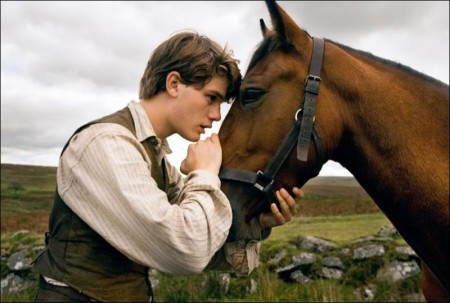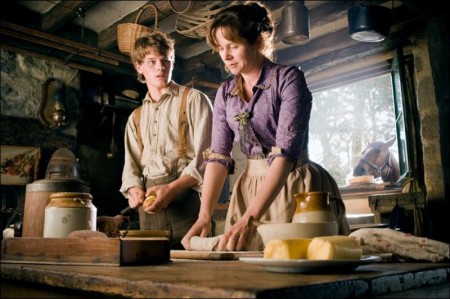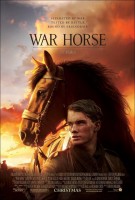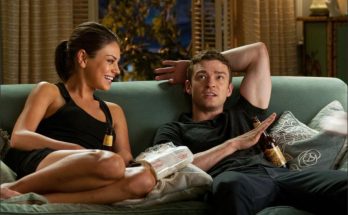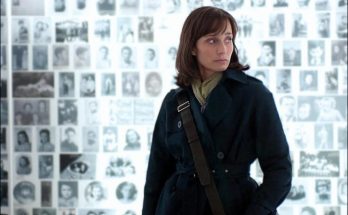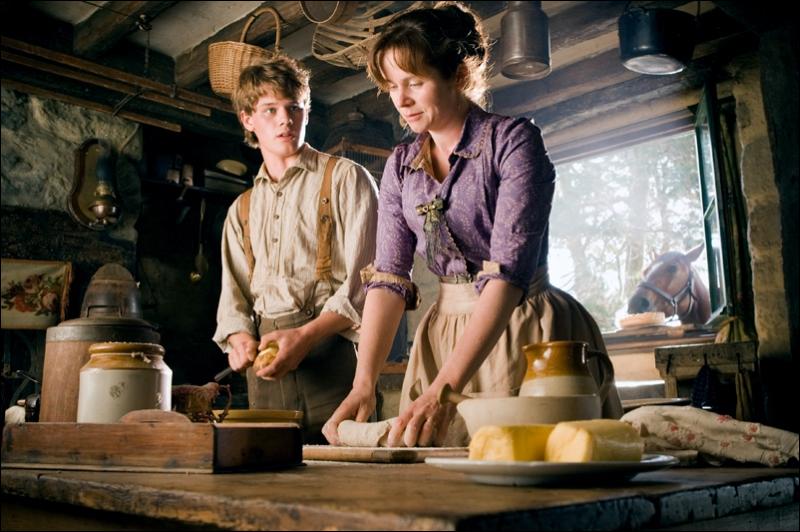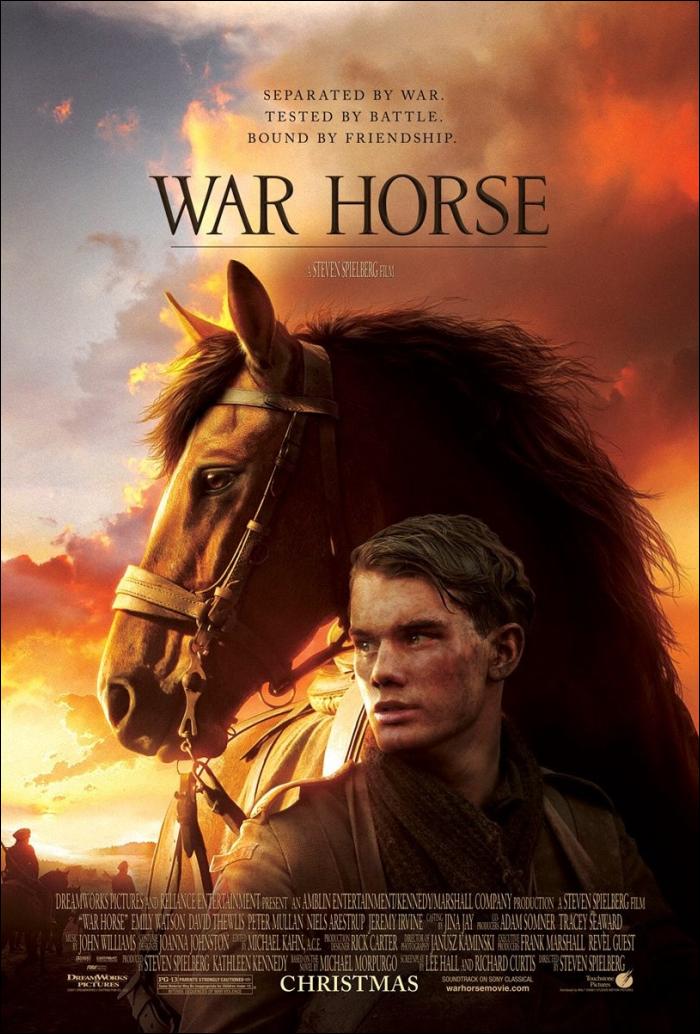Taglines: Separated by war. Tested by battle. Bound by friendship.
From director Steven Spielberg comes “War Horse,” an epic adventure for audiences of all ages. Set against a sweeping canvas of rural England and Europe during the First World War, “War Horse” begins with the remarkable friendship between a horse named Joey and a young man called Albert, who tames and trains him. When they are forcefully parted, the film follows the extraordinary journey of the horse as he moves through the war, changing and inspiring the lives of all those he meets — British cavalry, German soldiers, and a French farmer and his granddaughter—before the story reaches its emotional climax in the heart of No Man’s Land.
The First World War is experienced through the journey of this horse—an odyssey of joy and sorrow, passionate friendship and high adventure. “War Horse” is one of the great stories of friendship and war—a successful book, it was turned into a hugely successful international theatrical hit that is arriving on Broadway next year. It now comes to screen in an epic adaptation by one of the great directors in film history.
The Journey Begins
From director Steven Spielberg comes an emotional epic on a classic scale. It is the story of a miraculous horse in wartime—a stirring journey that explores a bond of friendship, loyalty and courage. Within the tale of a boy and the feisty colt he never stops believing in, there are sweeping battles, desperate escapes and an evocative odyssey through a world at war. But no matter where they go or what they experience both boy and horse keep forging ahead, driven by devotion and the hope of returning home.
Adapted from one of the great modern stories of friendship and war, the film is drawn from the novel that sparked a rousing stage hit, garnering five Tony Awards®, including Best Play. Now, Spielberg unfolds this heartwarming tale for all ages with a return to the territory where big screen cinema and intimate storytelling meet. Says Spielberg: “To me, ‘War Horse’ is a timeless story about the sacrifices of love— about the sacrifices a boy makes in a time of war to find his horse and the sacrifices the horse makes just trying to survive this dark episode in history. Throughout it all, their destinies are entwined.”
The journey begins on the cusp of WWI, as an English farming family buys a fiery hunter colt at auction despite not having the funds to pay for him. Named Joey, the horse seems to be nothing but a loss for struggling Ted and Rosie Narracott (Peter Mullan and two-time Oscar® nominee Emily Watson), but their son Albert (newcomer Jeremy Irvine) is determined to tame and train him, making the most of Joey’s enthralling spirit, speed and affection. The two are inseparable, but when war breaks out, they are pulled apart as Joey is sold from under him and heads to the front as the mount of a dashing British cavalry officer.
Thus starts Joey’s labyrinthine trek through joy and sorrow, hardship and wonder, as this simple horse becomes a remarkable hero, touching lives on all sides of the war with his innocence, purity of motive, and unconditional devotion to his human friends. He pulls battlefield ambulances, whisks away German soldiers on the run, fires the imagination of a French girl and hauls colossal cannons up mountains. Albert heads into the trenches on his own perilous mission, Joey finds himself ensnared in the haunting No Man’s Land between British and German territory. But even when it seems there can be no return, he sets in motion a momentary chance for peace and holds fast to a dream of reunion and renewal.
To do justice to the story’s broad scope, Spielberg assembled a distinctive mix for the cast, delighting in bringing several newcomers to the fore, including Jeremy Irvine as Albert, Tom Hiddleston, Benedict Cumberbatch, David Kross, Patrick Kennedy, Toby Kebbell, Celine Buckens and Robert Emms, along with a host of award-winning veterans including Emily Watson, Peter Mullan, Niels Arestrup and David Thewlis.
DreamWorks Pictures and Reliance Entertainment present an Amblin Entertainment/Kennedy/Marshall Company production of a Steven Spielberg film, “War Horse.” Based on the novel by Michael Morpurgo, the screenplay is by Lee Hall and Richard Curtis. The film is produced by Steven Spielberg and Kathleen Kennedy, and the executive producers are Frank Marshall and Revel Guest. Spielberg’s close-knit artistic crew, most of whom he has worked with through several decades, includes editor Michael Kahn, director of photography Janusz Kaminski, composer John Williams, production designer Rick Carter and costume designer Joanna Johnston.
Joining them on “War Horse” was an extraordinary team of horse trainers and riders, all overseen by American Humane Society representative Barbara Carr, as they forged safe, respectful but unprecedented drama and action with equine actors as expressive as their human counterparts. Says Carr: “Everything was done in the safest, kindest ways for the animals. You could see in Steven that he truly cared deeply about the animals, and that was reflected in the entire production.”
A Horse’s Odyssey Home
How do you unfold a world-wandering tale of love, war, fortitude and hope when your main character is an innocent village colt in search of kindness, friendship and a way home?
That challenge instantly compelled Steven Spielberg when he encountered Michael Morpurgo’s novel “War Horse.” The book presented an inspiring legend, but it was cut from a different cloth than most. All manner of stories have emerged from war—stories of romance, of heroism, of moral dilemmas, of divided families transcending hardship. But here was a story of wartime as it had never been experienced: through the journey of an animal propelled into battle with no malice or side to take, fueled only by the burning desire to live and return to the ones he loves.
To do the story justice would be a creative and technical feat, one that hooked into Spielberg’s penchant for chronicling the human condition. It was one that, for all its scope, would have little to do with special effects and everything to do with a more hand-crafted cinematic style, working humanely and intelligently with remarkable animals and engaging human performances, and guiding a devoted crew to overlay a triumph of the spirit atop an unforgettably rugged landscape of conflict.
“War Horse” is about classical movie storytelling, weaving a chain of individual stories into an intricate canvas portraying the power of hope in the toughest of times.
The novel had been told with the simple power of allegory. The play, which Spielberg first saw in London at the urging of his long-time producer Kathleen Kennedy (who has produced four decades worth of Spielberg’s seminal films), was emotionally transporting with its whimsical use of towering yet bare-boned horse puppets. But Spielberg immediately understood he would have to find his own visual path to bring the story fully alive on the screen. He took off at a galloping pace.
“The puppets were magnificent on stage, but I knew that if we were going to tell the story, it had to be with real horses,” Spielberg says. “I loved the book also, but it is told from Joey’s point of view and you even hear Joey’s thoughts. I knew that was not an avenue that would work for the film, though it allowed me to understand the importance of telling the story from different viewpoints.”
Following a different track, Spielberg envisioned the film emerging from the tradition of the odyssey—the mythic journey that propels a youthful hero into the dangerous world only to return with hard-won wisdom and a fresh view of life. Only this time, the traveler would have the perspective of a different species silently, yet soulfully, witnessing humanity at its most troubled yet inspirational.
Structurally, the film became a study in shifting moods that lead into one another—the rough-hewn, almost storybook village of Joey’s youth gives way to the shock and adrenaline rush of a brave new mechanized battlefield, which gives way to an idyllic French farm full of pastoral pleasures, which unravels into the pandemonium of the trenches and the desolate mists of No Man’s Land, all of which only reinforces the driving memory of the village where Joey’s journey began, and to which he strives to return.
Courage is what keeps Joey and Albert going through four danger-filled years apart, and it is courage that becomes a theme woven through the entire texture and fabric of the film. “I think ‘War Horse’ has a lot to say about courage—and about doing things not just for yourself but for the sake of those you love. That theme comes through in many different ways,” Spielberg notes.
He continues: “Albert and Joey have a tenacious belief in one another. It all begins when they attempt together to plow this impossibly stony, infertile field in Devon, before the war. That creates such a synergy and empathic collaboration between horse and boy that when they are separated by the war, I think the audience senses that at some point there is going to be a date with destiny. And when that date occurs, you see that out, of the chaos, something wonderful happens.”
War Horse
Directed by: Steven Spielberg
Starring: Emily Watson, Toby Kebbell, Benedict Cumberbatch, David Thewlis, Tom Hiddleston
Screenplay by: Lee Hall, Richard Curtis, Michael Morpurgo
Production Design by: Rick Carter
Cinematography by: Janusz Kaminski
Film Editing by: Michael Kahn
Set Decoration by: Lee Sandales
Costume Design by: Joanna Johnston
Art Direction by: Andrew Ackland-Snow, Molly Hughes, Neil Lamont, Hattie Storey, Gary Tomkins, Alastair Bullock, Kevin Jenkins
Music by: John Williams
MPAA Rating: PG-13 for intense sequences of war violence.
Studio: DreamWorks Pictures
Release Date: December 25, 2011
Hits: 95
